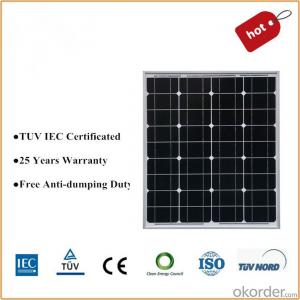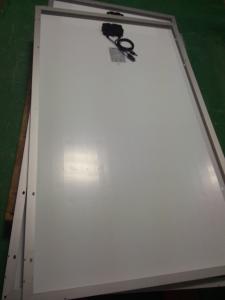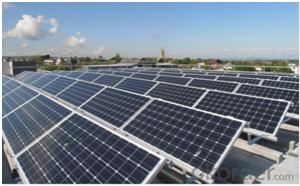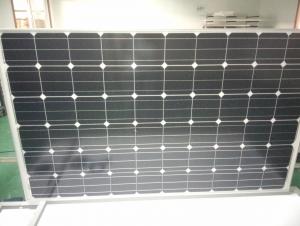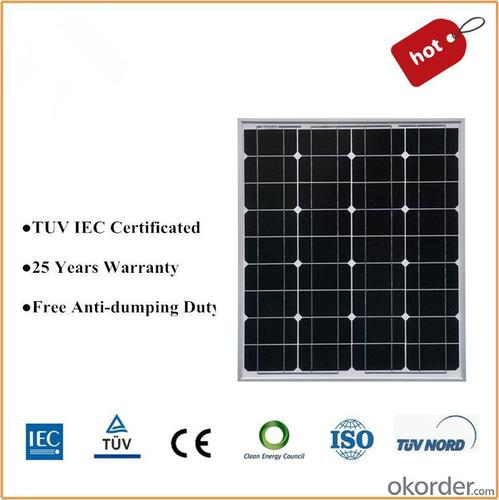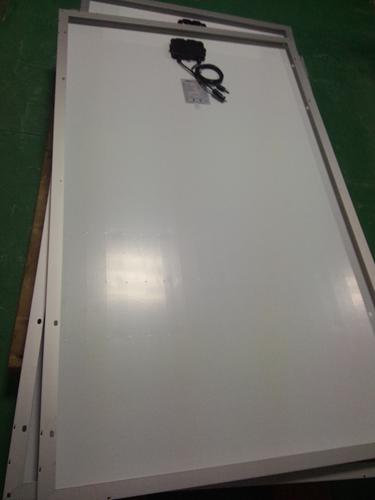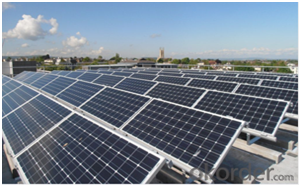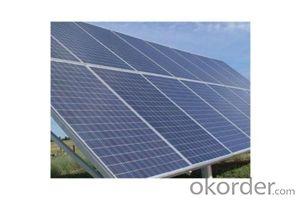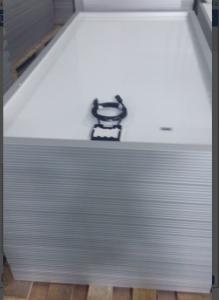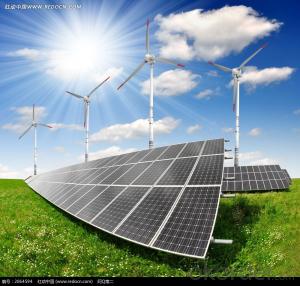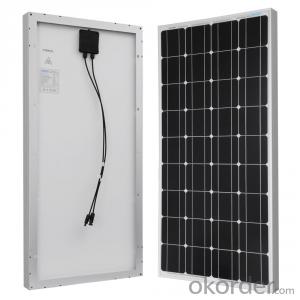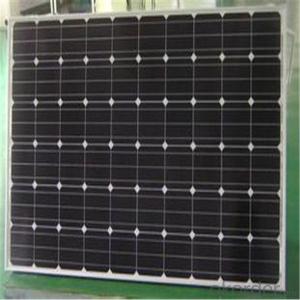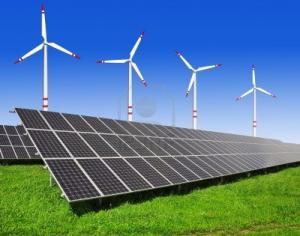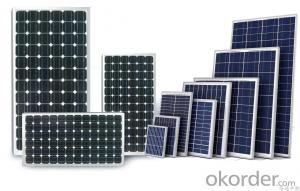Austin Solar Panels:140W Poly TÜV and UL Certified Solar Panels in China
- Loading Port:
- Shanghai
- Payment Terms:
- TT or LC
- Min Order Qty:
- -
- Supply Capability:
- 3000pcs watt/month
OKorder Service Pledge
OKorder Financial Service
You Might Also Like
Mechanical Characteristics
Max-power Pm(W) 140
Max-power voltage Vmp(V) 17.7
Max-power current Imp(A) 7.91
Open-circuit voltage Voc(V) 22
Short-circuit current Isc(A) 8.78
Dimension(mm) 1480*680*35
Weight(kg) 11.3
Operating Conditions
Operating Temperature -40~85°c
Storage Temperature -40~85°c
Maximum system voltage DC 1000V
Temperature and Coefficients
NOCT 48± 2°c
Temperature coefficient of Voc(%/K) -0.34
Temperature coefficient of Isc(%/K) 0.09
Power temperature coefficient(%/K) -0.37
Quality and Warranty
--Peak power of single module is guaranteed in±3% power tolerance
--3 years limited warranty on material and workmanship
--Limited power warranty:10 years 90% and 25 years 80% limited warranty for minimum power output
Package Picture
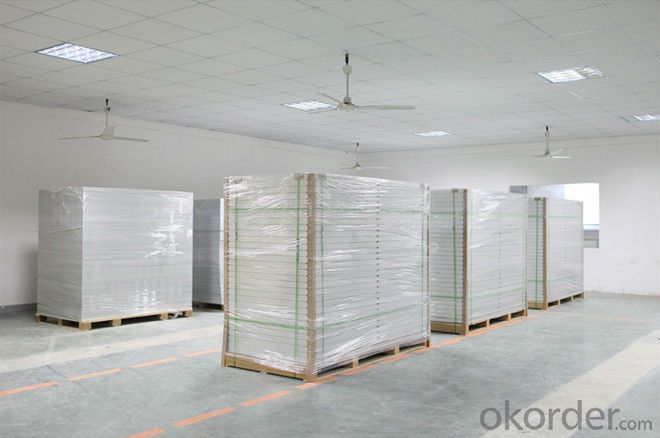
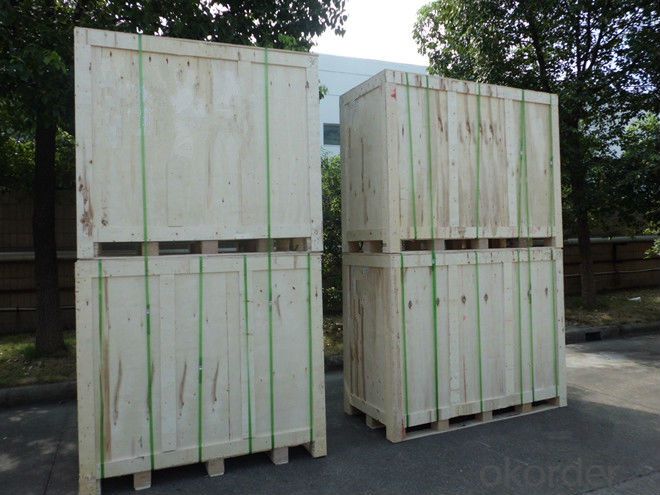
FAQ
I. Will you focus on the safety of the goods during transportation?
Yes, Safety of the cargo is the primary element that we would consider on transportation.
II..How would guarantee the quality will meet the requirements of your clients?
Before shipment, we will have inspection for each batch of goods.
III..What certificates do you have?
IEC,UL,TUV,CSA,etc.
IV..Can you do OEM according to clients’ requirements?
Yes, we have our own brand while we can provide OEM service.
- Q: I know that there is a life expectancy for solar panels, and I suppose, the technology involved. Any information?
- Great okorder
- Q: If one buys tons of solar panels and sells electricity(possible in my country) can he earn money ?
- there's some distinctive varieties of image voltaic panels. a number of them are basically for amassing warmth, they're quite low priced and not a bad deal, nonetheless installation might nicely be high priced of direction. the main state-of-the-paintings of those use some quite extreme tech creditors to warmth up an antifreeze answer that in the time of turn is circulated with the aid of a reservoir (how water heater), to furnish the homestead. Your electric producing image voltaic panels are greater high priced. you are able to bypass on OKorder and do a seek on photovoltaic panels and get a quite good theory actual rapid. The panels on my own can run you 2 or 3 dollars a watt of output or greater, and you're able to prefer 3 or 4 thousand watts of output to furnish you useful equipment on your homestead, consistent with how plenty electricity you employ. Then there is installation, for which you will prefer a professional electrician etc. in case you prefer a equipment incorporating deep cycle batteries then it somewhat is yet another cost, yet you do no longer unavoidably prefer those in case you're no longer making plans to take your self thoroughly off the grid. no longer that the systems are somewhat complicated. some people twine panels at the same time themselves from scrap cellular factors to maintain money. of direction you will might desire to understand the elementary wiring in contact for that, and you will virtually actual be required to keep an electrician to tie any equipment into the grid itself. besides the actuality that there is any such ingredient as a plug in grid tie inverter. it somewhat is is a device which will take your DC image voltaic panel output and feed it into the extensive-unfold wiring of your homestead with the help of potential of an undemanding electric outlet. you will nonetheless might desire to understand sufficient to get the DC voltage right little doubt.
- Q: I am doing a project on solar energy at the moment and I was just wondering how.
- Sunlight okorder /
- Q: Solar panels are costly.Do you know any inexpensive way?So that i can make one of my own.
- There are a couple other methods under development. One uses a fan inside a cooling tower and a large area covered with black tarps. The heated air can only escape through the cooling tower in the center of the site. The air movement turns the fan blades that spin a generator. Another solar generator uses mirrors that track the sun and focus their energy on a large pipe. I don't recall the contents of the pipe, but the superheated material is used to boil water generating steam to spin a turbine/generator. Neither of these are small scale projects, and are probably far more expensive than what you're looking for.
- Q: Also, what's the solar panel's rate of producing electricity?
- I'm okorder /
- Q: Hi, wanting to set up the most basic solar panel system for a cabin in the woods that has enough power to recharge four 2V car batteries during the daytime (i am assuming; we want to run a mini fridge maybe a stove and a few lights at night off the batteries and be able to run it all just off solar during the day) It also needs to be able to power some simple tools during the day... Experience would be absolutely amazing since alot of the info on solar paneling is either really dumbed down, or ridiculously confusing.As of right now I am looking at a 3 panel (45watt in all) solar kit that needs a 300w inverter.... is this sufficient for my power needs? I am just a little perplexed, thanks so much!
- If okorder / If the minifridge is one that plugs into 2 volts, that should be okay. Anywhere you can eliminate the inverter will help. Such as converting the stereo over to 2 volts. The nominally rated panels should be mounted at an angle to maximize the solar aspect/exposure. Essentially your lattitude plus 2 degrees for simplicity. If you add 60 Watts in panels you will do much better. Your 3 panels when installed correctly will actually yield over 5 Watts each panel at midday. If you do not achieve that, something is wrong in either the wiring, or a panel. It translates to about point2 Amperes to point5 Amperes at midday. If wired in series for 36 volts, the total current output will be same as a single panel (nominal 5 Watt), but at a higher voltage. If wired in parallel, you achieve the 45 Watts at nominal 2 volts. Watts is voltts times Amps. Also converting your tools over to run off the 2 volts will help, Or charging your tool batteries off the 2 volt buss. There are buck/boost circuits that would be capable of charging the common 4.4 and 8. volt tools out there.
- Q: can solar panels be on houses? malls?stores? WHAT ABOUT TRAINS?
- Solar panels are, well panels that take solar energy from the sun, and use it as heat or electricity. It is used for many things but depending on the power of the sun and the panel, they can be used for trains,houses to heat them but you need a lot of sun, and they don't work without sun obviously.
- Q: I have a solar panel that puts out 00v, .5 amps in full sun. Before I thought it would charge a 2v battery without a solar charger but then I talked to someone and they said that it was wasting a lot of power and could potentially hurt the battery. A second part to this question is what happens if I put it on a 72v battery without a controller. Thanks!
- the battery could explode. DO NOT DO IT !
- Q: Can solar panels be installed on a restaurant or food service establishment?
- Yes, solar panels can be installed on a restaurant or food service establishment. Installing solar panels can help offset energy costs and reduce the carbon footprint of the establishment, making it a more sustainable and environmentally-friendly choice.
- Q: my dad wants to run all his lights in his shop on solar panels, he has 9 600 watt hps lights. how many solar panels would it take to pull this off
- If he lives in a sunny area, he should contact a local solar installer about getting a grid-tied solar system to offset his electric bill. It's not necessary to supply all the electricity from solar. The system will work seamlessly right alongside grid electricity, and your father can choose whether to supply 20% of the electricity or 99% by sizing the system appropriately.
Send your message to us
Austin Solar Panels:140W Poly TÜV and UL Certified Solar Panels in China
- Loading Port:
- Shanghai
- Payment Terms:
- TT or LC
- Min Order Qty:
- -
- Supply Capability:
- 3000pcs watt/month
OKorder Service Pledge
OKorder Financial Service
Similar products
Hot products
Hot Searches
Related keywords
